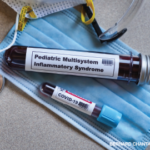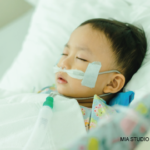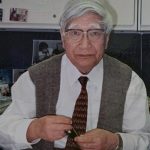To explore further, Orenstein et al. used light and transmission electron microscopy to study autopsy specimens and explanted hearts from patients with Kawasaki disease. They found three distinct vascular processes: necrotizing arteritis, subacute/chronic vasculitis and luminal myofibroblastic proliferation. The authors note this vasculopathic scheme is different than those described in previous studies, and it may be helpful in better understanding the natural history of Kawasaki disease, particularly in patients who become critically ill.7
How could an immunosuppressive medication have such a significant effect on lowering the frequency of cardiovascular events in high-risk patients?
MIS-C
Given the importance the COVID-19 pandemic has played across all fields of medicine, Dr. Gorelik took some time to discuss the topic of multisystem inflammatory syndrome in children (MIS-C). MIS-C is a severe delayed hyperinflammatory syndrome that can occur in children and adolescents two to six weeks after infection with the SARS-CoV-2 virus. Because Kawasaki disease and MIS-C share many similar presenting symptoms and laboratory findings, some have speculated these conditions may exist on the same disease spectrum. This has led to research to better understand MIS-C and its pathogenesis.
Dr. Gorelik described a study from Spain. On autopsy of a young patient who died of presumed MIS-C, the SARS-CoV-2 spike protein was identified in colonic cells. This finding seems to support the hypothesis that the persistence of the virus in the gut of infected patients—even weeks after initial infection—may play a role in triggering the severe inflammatory cascade seen in patients with MIS-C.8
Other Research
Near the end of the lecture, Dr. Gorelik talked about some of his own research interests, including those related to follistatin-like protein 1 (FSTL-1). This secreted glycoprotein has been found to be overexpressed in several inflammatory diseases.
In 2013, Dr. Gorelik and colleagues investigated FSTL-1 levels in systemic juvenile idiopathic arthritis (sJIA) and macrophage activation syndrome (MAS). They were able to measure FSTL-1 levels at the time of presentation and after the treatment of patients with sJIA and MAS. The authors found that elevated pretreatment FSTL-1 levels in the serum of patients with sJIA are associated with dysregulated gene expression that can suggest occult MAS. These protein levels may serve as a predictor for determining which patients are likely to develop overt MAS.9
More recently, Dr. Gorelik and his collaborators have been examining the role FSTL-1 may play in promoting the development of coronary artery aneurysms in patients with Kawasaki disease. These investigations include comparing the model of Kawasaki disease in mice with FSTL-1 wild type expression and those with knock-out mutation for FSTL-1, as well as examining trends in mortality rates and cardiac inflammation between these sample groups.



